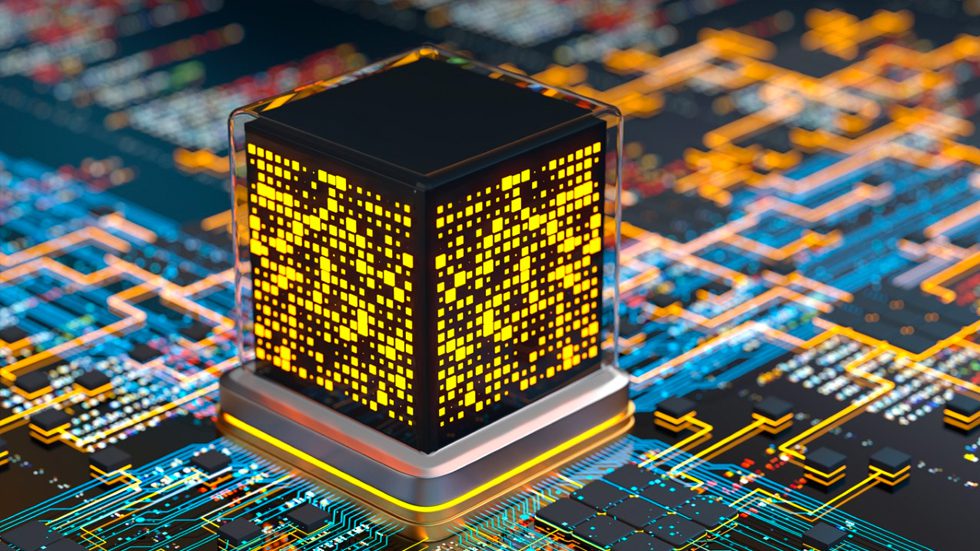Understanding the Ins and Outs of Quantum Computing
From automobiles to banking, quantum computing offers endless opportunities for various industries. According to the US Bureau of Labor Statistics, a staggering 11% growth in professions in computer and IT is possible. Quantum Computing harnesses the portents of quantum mechanics to solve major computation problems.
While there has been great reliance on supercomputers to deliver, solving specific issues deemed easy is impossible. Quantum computing is a unique way of computer development based on the principles of quantum theory and deals with complex data.
What is quantum computing, what can it do, and why is it necessary? Let’s stick around and find the answers.
What Is Quantum Computing?
Quantum computing is a kind of computation that utilizes the shared properties of quantum states like interference, the principle of superposition, and entanglement to perform sums. And this is only possible with the use of a quantum computer.
Unlike classical computers, quantum computing involves the calculation of complex data. For instance, instead of 1s or 0s, it calculates more complex numbers like a quantum superstition of 0 and 1.
The concept of quantum computing is complex. To better understand, below are definitions of terms found in this subject.
- Qubit: The usual computers operate using binary digits, also called bits. It means two distinct patterns can be measured and are encoded either as 0 or 1 or opposites like up and down. On the flip side is the qubits, which are the basic unit of quantum computers. Qubits are a result of two states in quantum mechanical systems. For instance, a rotation of an electron is either vertically or horizontally divided.
- Superposition: Superposition is the ability of two sequences of data to exist at once. It’s a more powerful version of data presentation, unlike in the traditional computers where only one form like 0 or 1 can be presented at a time. With this ability, complex computation is possible.
- Entanglement: Entanglement is what creates a connection between two cubits. The relationship is essential to enable a fast way of solving problems. And the web forms one component. When one is affected, all the components are impacted. Besides, the relationship is possible in more than two qubits.
What Are the Pros and Cons of Quantum Computing?
As more companies such as IBM and Google are successfully creating quantum computers, are they worth it?
Pros
With quantum computers’ complexity, is it necessary to have them? Check out their benefits first.
- A Solution to Complex Computing
Quantum computers can calculate and solve complex problems. And this is not possible with supercomputers. Do you remember the concepts of superposition and entanglement mentioned earlier? Now, this is where they are applicable. Quantum computers center on these two notions to work on the impossible in computing. - They Are High-speed Computers
Imagine the possibilities of calculating in 200 seconds, that would take a traditional computer 10,000 years. Well, that’s how fast the quantum computer works. At this rate, the classical computers are matchless to the quantum. - Quantum Computers Can Solve Mysteries
Solving mysteries sounds unimaginable. But quantum computers have an abnormally high rate of solving challenging problems, which can be replicated in other sophisticated systems.
Cons
Now, here are some of the disadvantages of quantum computing.
- Manufacturing Is Tough
Unlike classical computers, these computers need a vast cooling method, rare parts, and high-priced technology to operate. - Performing Limited Tasks
While quantum computers could move mountains on one end, they cannot do the same in all areas of computing. And this is due to the nature of their working. - Susceptible to Errors
Quantum mechanics and qubits are easily affected by external factors. It is called decoherence. With every high intricacy, the errors multiply. Finding a solution to these errors will boost the working ability of quantum computers.
Functions of Quantum Computing
Quantum computing has the potential to make life way more manageable, and this is what it does:
- Fast Record Search: If you’re in an organization with multitudes of data to work with, quantum computers can do magic for you. They can store data that can be accessed faster than other computers.
- Meteorological Services: Weather forecasts result from multiple data analyses, and it’s not easy with supercomputers. On the other hand, quantum computers make such work possible.
- Cryptography: Quantum computers are a significant concern when dealing with cyber security. They can break any level of encryption. With the ongoing inventions, quantum-proof cryptography will help in cyber security.
- Molecular Modelling; Mimicking atoms and molecules is close to impossible. But with quantum computers, new intuitions on various areas like protein interactions are identified. For this reason, there’s help in energy storage and the manufacture of medicines.
Conclusion
Quantum computing is the future of IT. But there is so much complexity with computers, and some people see it as an impossible endeavor. Well, will the benefits of this system ever be enjoyed by all and a stable form of the computers manufactured? It’s a matter of, let’s wait and see.
With the ever-changing technology in the business world, you need a tech solution friend. Webhead is here for your program management, software development, visual design, digital marketing, among other essential tech services. Reach out today!

